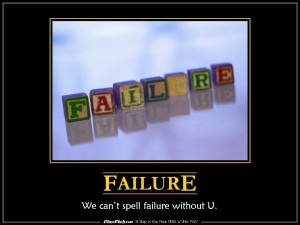-Mike Pezone
 Innovate or be left behind – that is the mantra of the private sector. Many entrepreneurial companies, big and small, follow a process of continuous improvement looking for ways to deliver products and services quicker, better and cheaper. Apple is the most recognized example of a large company that is constantly improving products that appeal to consumers, but all companies are forced to compete for customers. Continuous improvement brought on by competition is a search for (in)efficiencies and developing ways to address them.
Innovate or be left behind – that is the mantra of the private sector. Many entrepreneurial companies, big and small, follow a process of continuous improvement looking for ways to deliver products and services quicker, better and cheaper. Apple is the most recognized example of a large company that is constantly improving products that appeal to consumers, but all companies are forced to compete for customers. Continuous improvement brought on by competition is a search for (in)efficiencies and developing ways to address them.
So what can development practitioners learn here? Well quite a bit. While innovation is intertwined in the DNA of the private sector, it is not necessarily so in development. Yet, it is quite easy to make the argument that nothing could be more important than bringing that same innate internal capability of the private sector to develop innovative products and services for those living at the base of the economic pyramid. If development practitioners hone their ability to translate private sector speak and learn from their failures (which I would like to add many CEOs carry around like trophies) then development practitioners will be able to integrate some important lessons for increased effectiveness. I challenge you to read through the below article and think through how this clearly private sector example is analogous to some of the challenges and work your organization faces and how you can integrate some of these lessons to be more effective. Of course, let us know what you think. Good ideas are better when shared.
__________________________
This post originally was published on fastcompany.com here in 2009
There is a good relationship between innovation and failure. As Monica Harrington shares, Microsoft Bob gave plenty of very smart people a run for their money – and lessons to take to their next project. Those are familiar lessons. Building on Harrington’s:
1. Never underdeliver against expectations – if you work in a sales-driven organization, common especially in B2B, you will know that there is a tendency to overpromise to get in the door. That might not be such a good idea.
2. Consumers don’t care about strategy – that’s right, your customers won’t care if you have a vision. All they want is for your service or product to make their life easier.
3. A small marketing budget can do wonders – believe it or not, I do think that the potential of social media will be realized most by B2B companies. After a career spent working with them, I know how small their budgets are and how creative teams get with them.
4. If you start to get feedback from customers that your product is anything but great, don’t forget that you only get one chance to make a first impression – this pint is really hard because it feels like you need to keep backing a decision made to invest time and effort in something.
5. Don’t be afraid to take risks – one of the worst habits organizations get into is that of not taking any risks, which translates into not supporting individuals who think outside the benchmark. If it’s not been done before, there are no benchmarks.
6. Place the bet on smart people who push the envelope – why do so few organizations do that? Why do so few individuals do that, too? What are three ways you can bet on smart people in your network and company today?
7. Never forget the crucial role influentials play – every industry, type of service, and product has them. Go find out who they are and engage them in the process – testing, providing feedback and input will save you from your internal conversation with additional context.
8. If it doesn’t work the first time, be open to the idea that it might work down the line – sometimes it does pay to be persistent, to go back and fix the bugs or undesirable product features.
9. Don’t be afraid to poke fun at yourself – loved the video of Bill Gate’s last day at Microsoft.
The times when I’ve learned the most, were those when things didn’t go exactly as planned. What lessons have you taken from failure?


